On 5 June 2024, the ASEAN-China Centre (ACC), in collaboration with the China International Communications Group (CICG), Ministry of Investment, Trade and Industry of Malaysia (MITI) and other related organizations, co-hosted the ASEAN (Malaysia)-China Conference on Emerging Industries in Kuala Lumpur, as one of the activities to celebrate the 50th anniversary of the establishment of diplomatic ties between Malaysia and China. The ACC Secretary General Shi Zhongjun, CICG Deputy Director Liu Dawei, MITI Deputy Secretary General Datuk Hanafi Sakri, Chinese Ambassador Ouyang Yujing to Malaysia, and heads of major Malaysian chambers of commerce attended and addressed the opening ceremony. Over 350 government officials from Malaysia, China and other ASEAN Member States, diplomatic envoys in Kuala Lumpur, representatives of chambers of commerce and trade promotion agencies, and entrepreneurs attended the event.
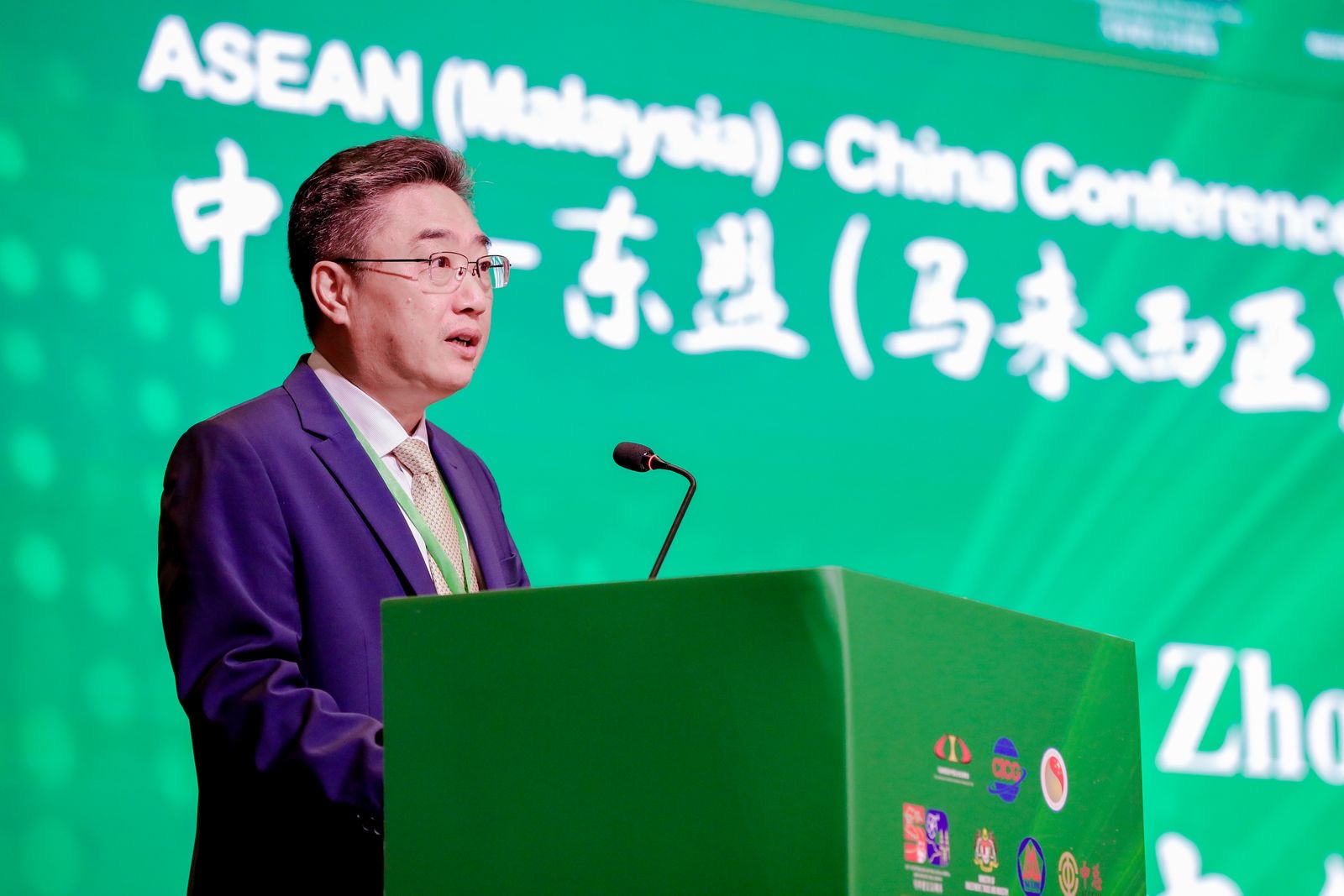
Secretary General Shi stated that the current technological revolution and industrial transformation are reshaping the global economic landscape. Developing emerging industries is a critical strategy for developing countries to achieve leapfrog socio-economic development. Malaysia has introduced a series of strategic initiatives in such fields as clean energy and the digital economy, which align well with the new quality productive forces that China is currently promoting. There is a significant potential for cooperation among business communities. This Conference has provided a useful platform for collaboration in emerging industries within the region, helping to elevate economic and trade cooperation to new heights between ASEAN-China, as well as Malaysia and China.
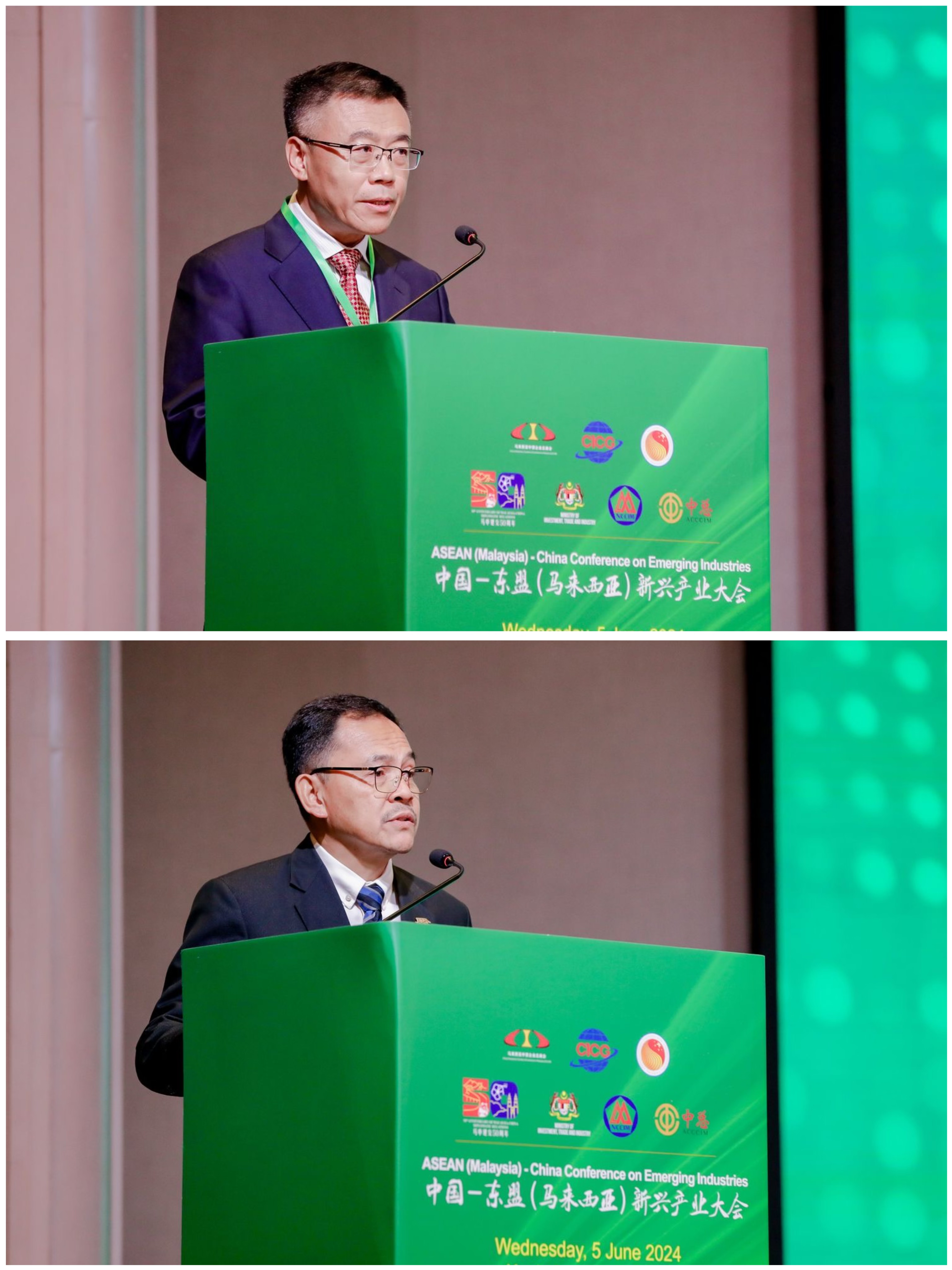
Deputy Director Liu Dawei noted that China is advancing its modernization in an all-round manner, while Malaysia, as a newly industrialized country, is undergoing industrial restructuring and upgrading. Both countries enjoy complementary strengths in emerging industries. China and Malaysia should form a broader consensus, establish regular communication mechanisms, and carry out more practical cooperation in key areas.
Deputy Secretary General Datuk Hanafi Sakri stressed that Malaysia values its friendly relations with China. Both countries enjoy close economic and trade relations and diverse forms of cooperation. Malaysia looks forward to further aligning its development strategy with China to jointly explore new areas such as green energy and digital economy, and to continuously enhance regional industrial cooperation.
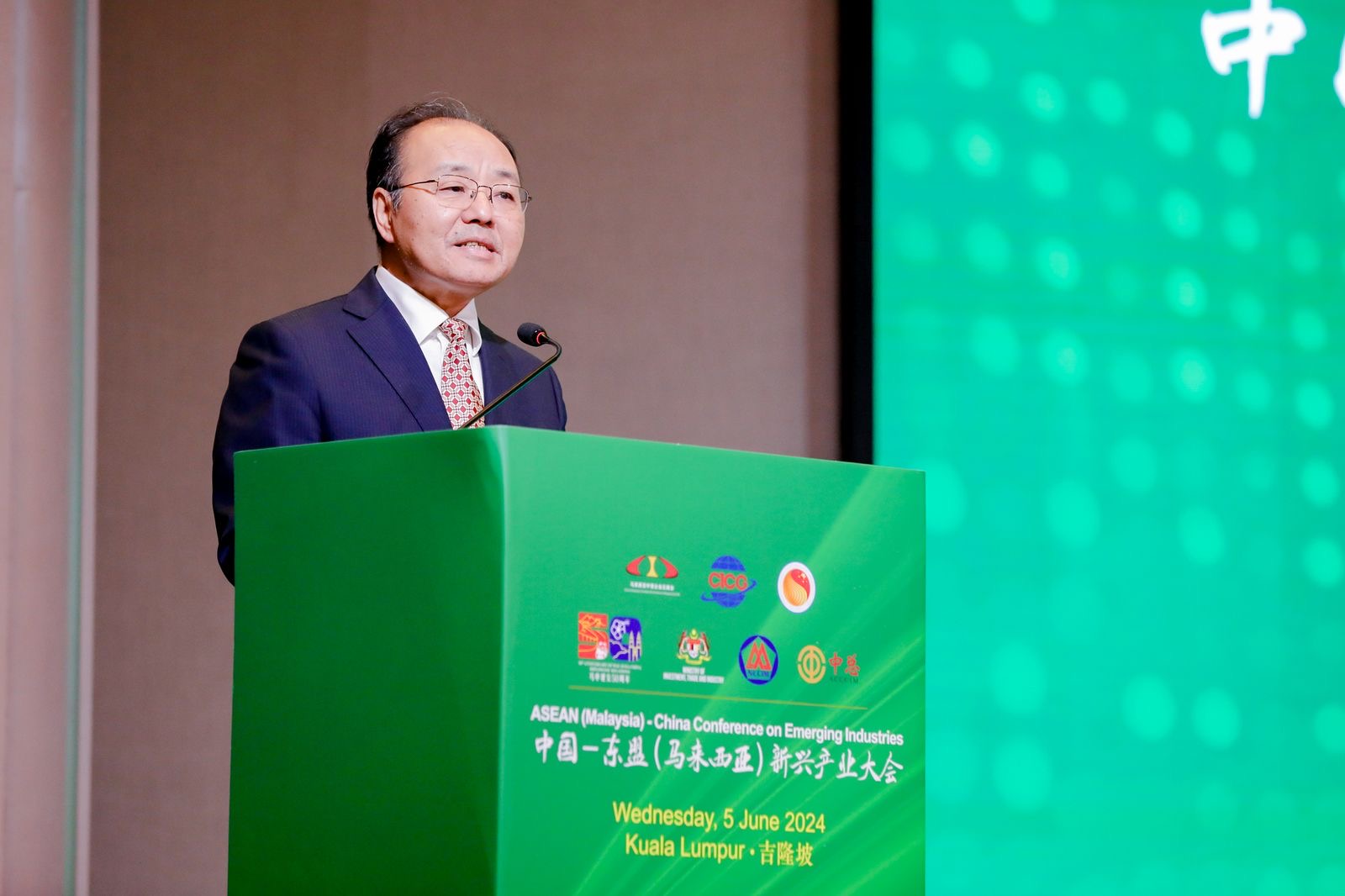
Ambassador Ouyang Yujing expressed expectations for deepening cooperation in emerging industries between AMS, including Malaysia, and China. He suggested that both sides should further consolidate consensus, overcome trade barriers and protectionism, and seize opportunities to achieve sustainable development and common prosperity.
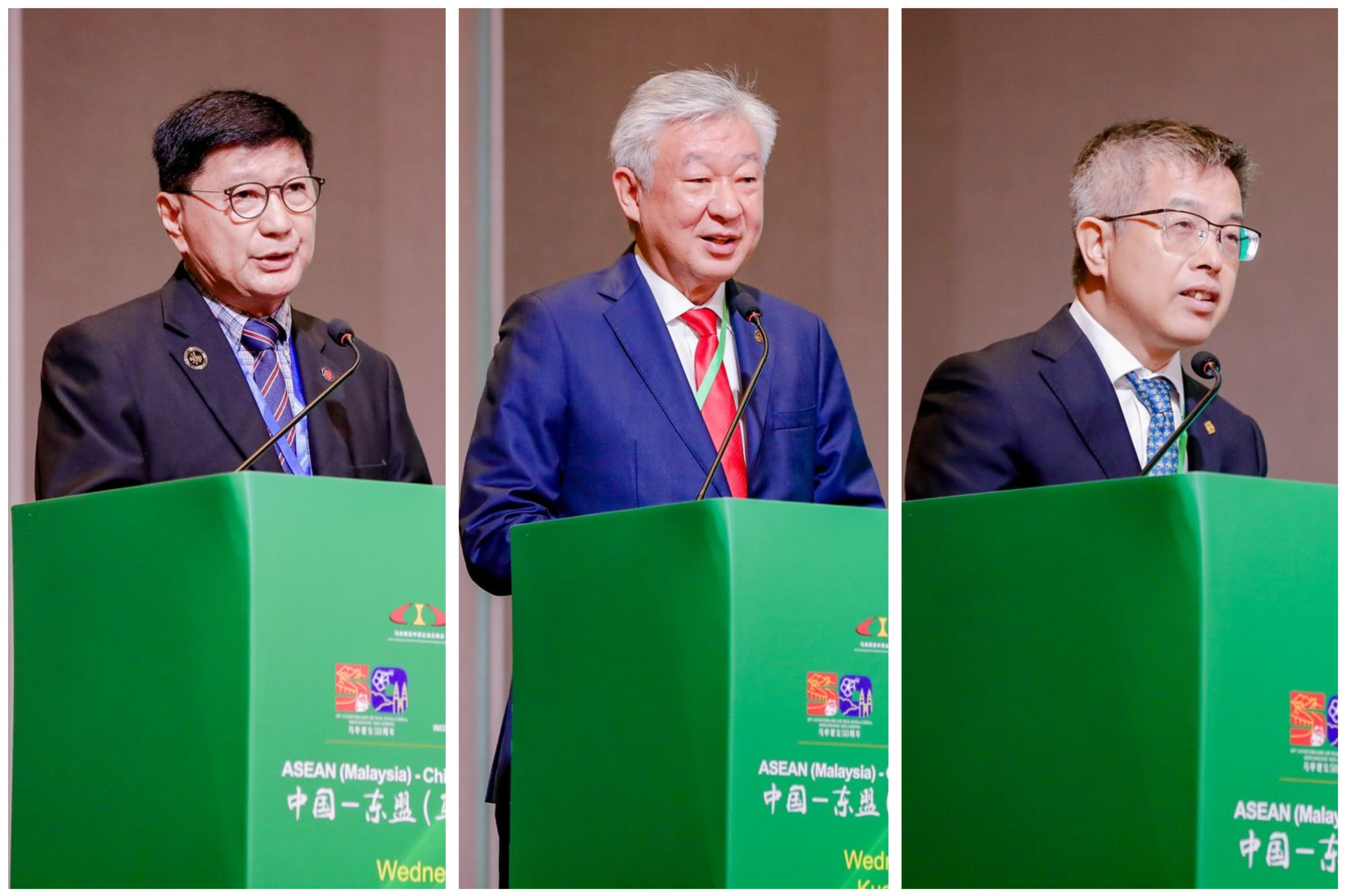
President Soh Thian Lai of National Chamber of Commerce and Industry of Malaysia (NCCIM), President Low Kian Chuan of the Associated Chinese Chambers of Commerce and Industry of Malaysia (ACCCIM), and Chairman Ni Qingjiu of China Enterprises Chamber of Commerce in Malaysia (CECCM) expressed hopes that the business communities of both countries could actively strengthen exchanges and cooperation in emerging industries. Their chambers of commerce stand ready to play the role as bridges so as to build more various and broader platforms for business cooperation to help regional entrepreneurs achieve win-win results and common development.
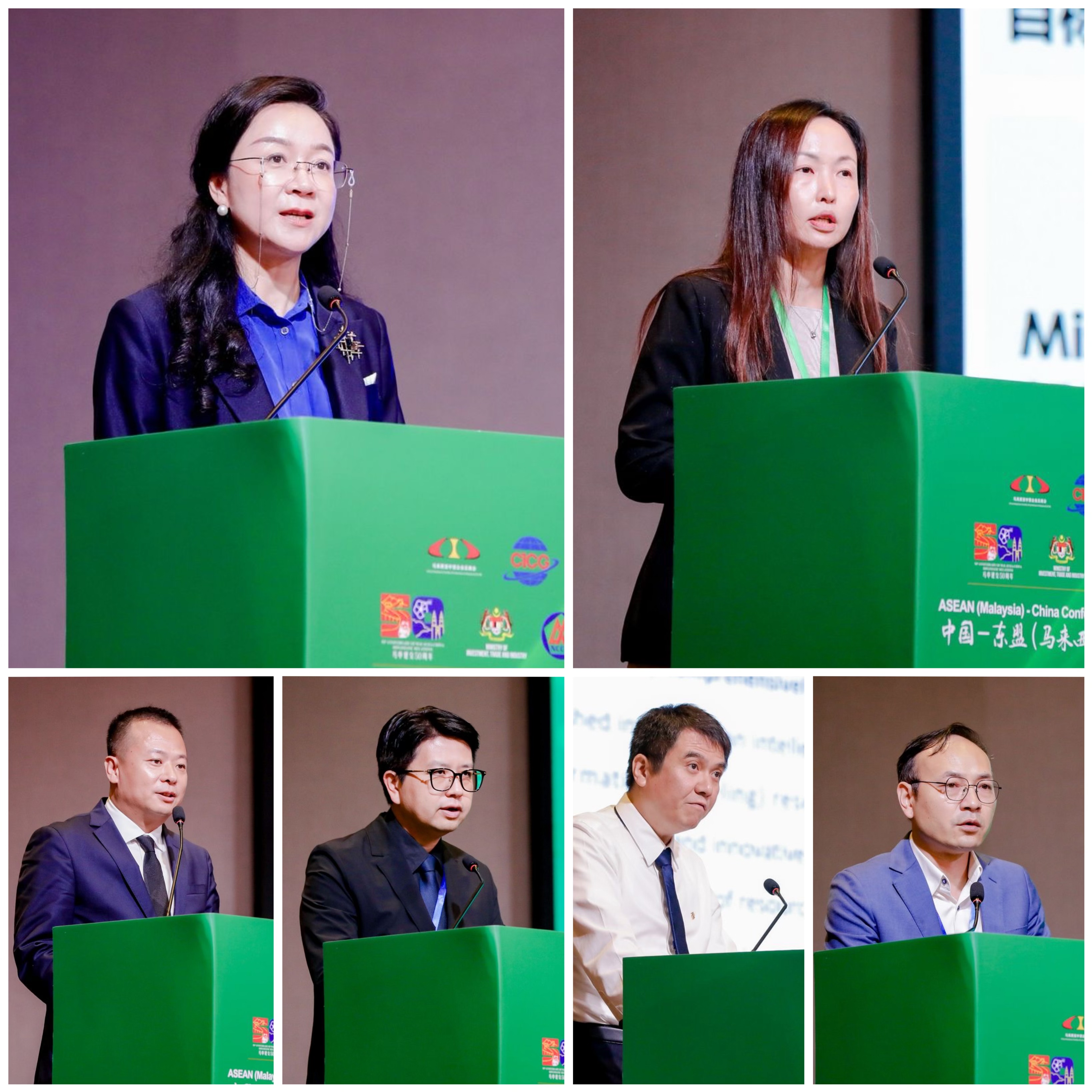
At the Business Opportunities Promotion Session, Secretary General Yang Yanyan of the Joint Secretariat of China-ASEAN Business Council (CABC) presented Guangxi's policies on opening up and various advantages of cooperation with Malaysia and other ASEAN countries. The Malaysian Investment Development Authority (MIDA) gave a detailed introduction to the country's economic and trade environment. Representatives from relevant enterprises shared their perspectives and experiences on doing businesses in Malaysia.
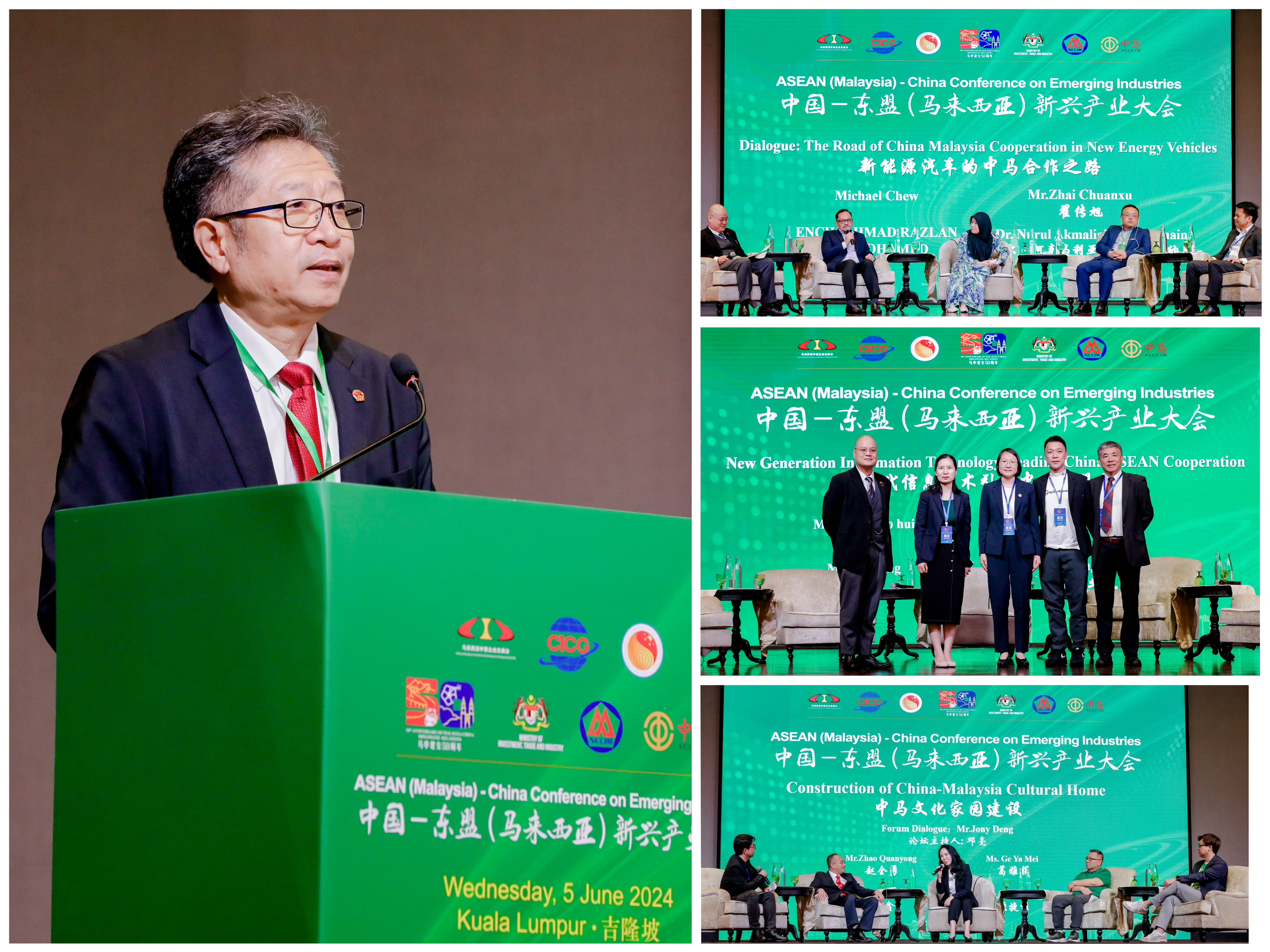
During the Conference, themed forums on new energy vehicles, next-generation information technology, and creative cultural industries were also held. Minister Counsellor Sun Shuqiang of the Economic and Commercial Office at the Embassy of China in Malaysia encouraged business communities in both countries to actively pursue opportunities in advanced manufacturing, particularly within the automotive sector. He stressed the importance of integrating regional supply and industrial chains to foster innovative cooperative development strategies, reflecting the unique demands and characteristics of the current era. Enterprises representatives and experts from both Malaysia and China discussed how to seize opportunities in emerging industries and explore ASEAN markets.
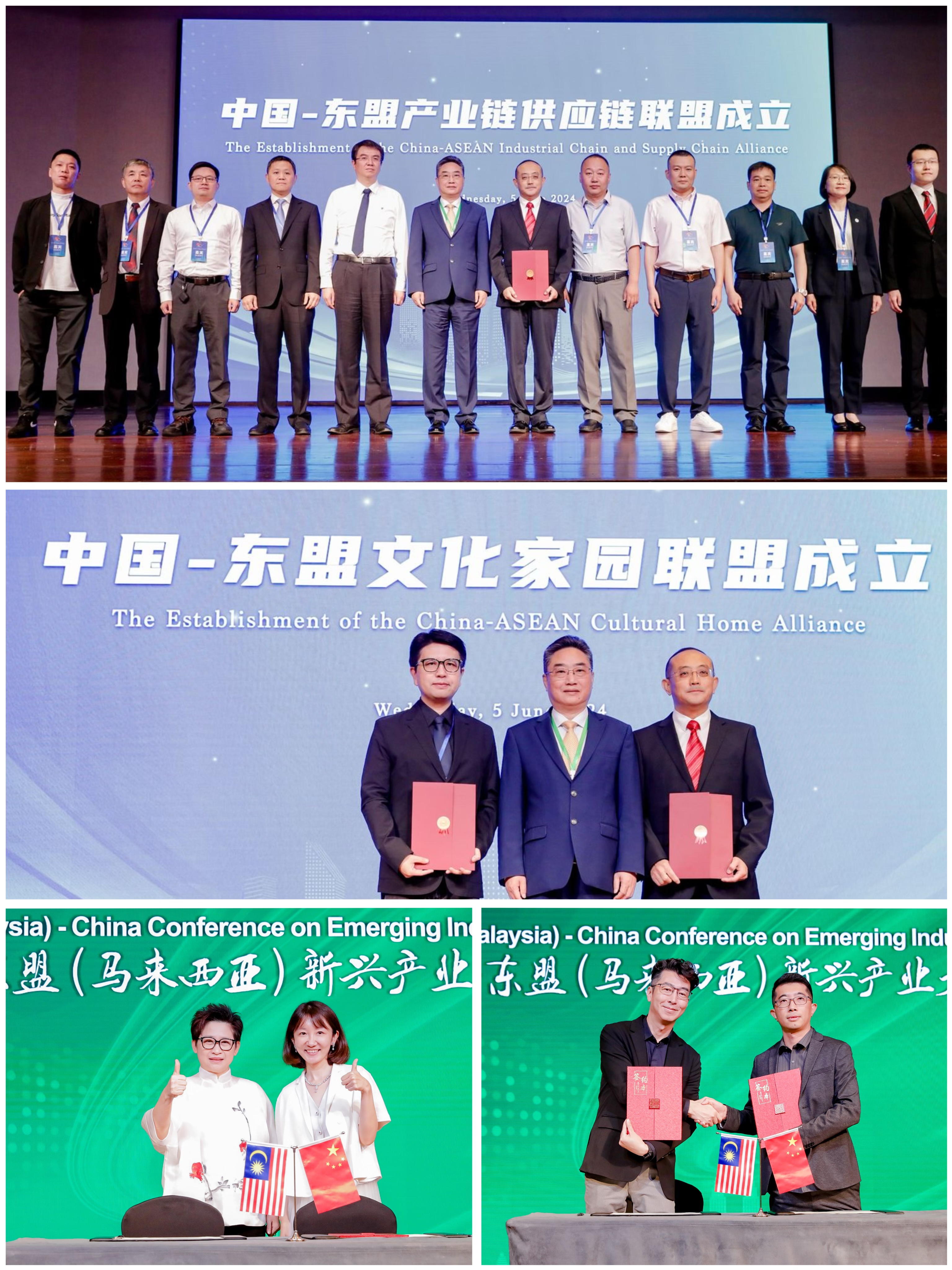
The Conference yielded substantial results. It declared the establishment of the China-ASEAN Industrial Chain and Supply Chain Alliance and the China-ASEAN Cultural Home Alliance. Additionally, businesses from sectors like healthcare and transportation signed cooperation agreements.

On the same day, the ACC, in partnership with CABC Joint Secretariat and NCCIM, co-hosted the Malaysia- China (Guangxi) Business Dialogue. Secretary General Shi delivered a keynote speech, emphasizing that Malaysia and China should adhere to mutual benefit and win-win cooperation, strengthen coordinated development, and enhance people-to-people exchanges. The two sides should continue to expand economic and trade interactions on the present basis, deepening the comprehensive strategic partnership between ASEAN and China.
During his visit to Malaysia, Secretary General Shi also met with Deputy Minister Liew Chin Tong of MITI and the Undersecretary Mohd Tarid Sufian of the East Asia Division at the Malaysian Foreign Ministry. Both sides exchanged ideas on promoting the integration of ASEAN and China’s industrial and supply chains, achieving regional prosperity, and further strengthening cooperation between the ACC and Malaysian counterparts.
In the following few days, the ACC will organize Chinese enterprises for field trips in Malaysia, visiting industrial parks such as the Tanjung Malim Automotive High Tech Valley and the Malaysia-China Kuantan Industrial Park, to explore business opportunities with Malaysian enterprises.